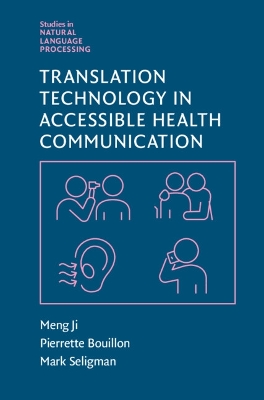Studies in Natural Language Processing
1 total work
Translation Technology in Accessible Health Communication
by Meng Ji, Pierrette Bouillon, and Mark Seligman
Published 31 August 2023
Digital health translation is an important application of machine translation and multilingual technologies, and there is a growing need for accessibility in digital health translation design for disadvantaged communities. This book addresses that need by highlighting state-of-the-art research on the design and evaluation of assistive translation tools, along with systems to facilitate cross-cultural and cross-lingual communications in health and medical settings. Using case studies as examples, the principles of designing assistive health communication tools are illustrated. These are (1) detectability of errors to boost user confidence by health professionals; (2) customizability for health and medical domains; (3) inclusivity of translation modalities to serve people with disabilities; and (4) equality of accessibility standards for localised multilingual websites of health contents. This book will appeal to readers from natural language processing, computer science, linguistics, translation studies, public health, media, and communication studies. This title is available as open access on Cambridge Core.
